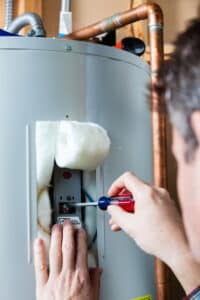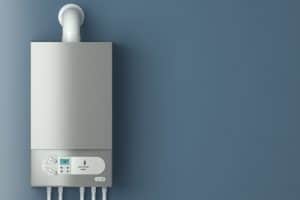
In truth, we can’t answer this question directly in this post. Why not?
It’s not because we don’t know our stuff, obviously. When you’re looking for a plumber in Loveland, CO, you know we’re the company to trust.
No, it’s because there is no one type of water heater that is right for every home or every homeowner.
What we can do in this post is to help you better understand both the pros and the cons of tank and tankless water heaters. That way, you can make an educated decision for yourself. And, of course, you can always reach out to a member of our team with any questions that you may have.
So keep the following in mind, and let us know if you’re ready to invest in a new water heater for your home!
1. Initial Cost
The first thing that most homeowners are going to look at when investing in any new system for their homes is the price tag associated with those systems. And that price tag is what can send some budget-minded homeowners running to the tank water heater section.
There’s no getting around it. A tankless water heater is going to cost more to purchase.
That’s important phrasing, though. Because, yes, the upfront cost of a tankless water heater is more than a tank water heater. Much more, depending upon which models of each system you’re looking at. It’s also important that you keep in mind how long you plan to be in your home, because this brings us right into our next point.
2. System Lifespan
If you’re going to be in your home for the foreseeable future, and you’re the type of homeowner that likes to hang on to the items you purchase for as long as possible, then a tankless water heater definitely might make the most sense for you.
Your average tank water heater is likely going to last you about 12 years. Some go longer, of course, but that’s the average.
A tankless water heater, on the other hand, will typically last to—and beyond—20 years of age. That’s impressive, and it only grows more impressive when you consider this lifespan as it relates to our next point.
3. Energy Efficiency
This is the big one. Because tankless water heaters do not use hot water tanks to store water—they heat water in an on-demand fashion, instead—they aren’t subject to standby energy loss.
What’s that?
When you store hot water in a tank, some of that heat will inevitably transfer through the tank and into the cooler air surrounding it. Now, modern hot water tanks are more efficient than ever before. And they can be further insulated with insulating jacket materials. But, with the extensive lifespan of the tankless water heater, serious energy savings over additional years or projected lifespan can result in long-term returns, even if the initial investment is higher.
Have questions? We’re here to help!



